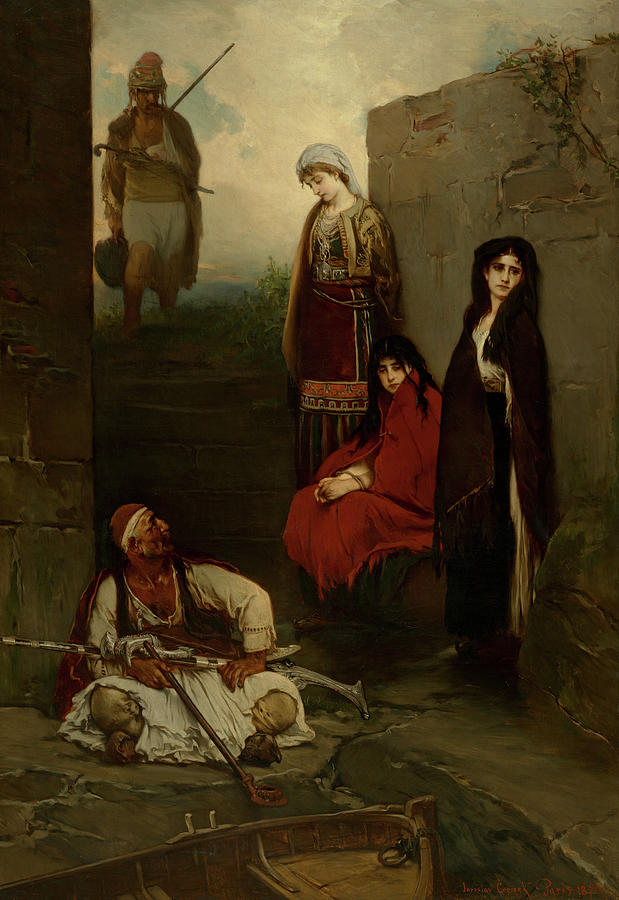Shabbat Ki Teizei Shalom

Captive Montenegrin Women by Jaroslav Cermak
by Phyllis Chesler
I would have to study this parsha for least a year or more in order to understand how a parsha that is filled with so many compassionate laws could also be so blithely cruel to women. Yes, I admit it, my views are strictly of my time, but isn’t that precisely what we can and must bring as we engage with the Torah?
Some of this parsha’s compassionate laws include: We cannot keep a murderer’s corpse hanging overnight because even he is b’tzelem; we must return lost animals to our “brothers;” shoo the mother bird away from her nest before we remove her eggs; build our roofs with care so that no one can slip off and die; refuse to engage in usury; allow newly married men to refuse army duty; return the clothing of a laborer at sunset and never withhold or steal a poor laborer’s wages.
As for the less compassionate laws, here are some, all in the same parsha. Jewish soldiers are allowed to take women captured in battle either as slaves or as wives—but if, after allowing her to mourn her parents and her God for a month, (out of mercy or to rid her of her pagan ways), her captor can cohabit with her, and if he finds that he does not desire her (lo hafatzta ba 21:14), he can send her away. True, he cannot sell her or exploit her—but what if she’s pregnant? And where can she go? How will she live?
I must stand with her. We all should. She deserves our compassion and should also be protected by the most merciful of Jewish laws.
And what can I say about the wife whose husband hates her because he believes she is “lecherous” i.e. for no apparent reason. Nevertheless, he is commanded to divorce her. (23:24). Thus, he has shamed her. Who will marry her now? How will she survive? For now, I will be silent about levirate marriage which is spelled out here. However, it is not really that different from the fates of the other women in this parsha who must marry whomever their father or brothers choose for them and who are at risk of being shamed, divorced, impoverished, and even stoned to death as a function of their sex or their alleged sexual waywardness.
It is true: The community is commanded to take care of the widows and orphans but a divorced woman who has no family of her own or whose family will not take her back is not in either of these categories. Even if people take pity on her she remains a beggar, a supplicant, at the mercy of mere humanity.
There is one law here that punishes a man who publicly makes a false claim against his wife, namely, that she was not a virgin when they married. If the wife’s father can bring out the bloody bridal night sheet—the husband must pay a fine for his lies. In a sense, though, this also punishes the innocent wife, who must endure this ordeal as well as that of having to remain married to him. As for the allegedly guilty wife—oh, she is not fined, she is to be stoned to death by the people of the city. (22:21). Did our compassionate lawgivers not understand that not all girls/women have hymens, not everyone bleeds on their wedding nights?
I must cry out against this.
You might think that a radical feminist such as myself would also cry out against male-dominated marriage, but I realize that for women in Biblical times—and down through the centuries, marriage, if not to a violent husband, has ensured female economic survival and social standing.
Please forgive me if I have disturbed your Shabbos peace, but how can I remain silent when others are suffering?